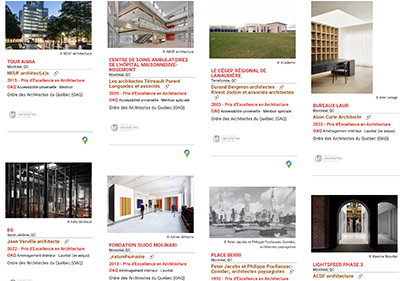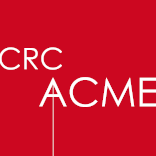
LEARNING TO SEE ARCHITECTURAL QUALITÉ IN QUÉBEC
2023-2025 – Programming and unfolding of interfaces to raise public awareness of the quality of built environments
[/vc_column_text][/vc_column][/vc_row]
Project Director:
Jean-Pierre Chupin, Professeur, School of Architecture, Université de Montréal.
Canada Research Chair in Architecture, Competitions and Mediations of Excellence.
Partnership description
Led by university researchers from the Faculty of Environmental Design (architecture, design), this partnership brings together representatives of three main types of stakeholder in the built environment in Quebec: (1) public authorities, (2) users and citizens, and (3) the construction professions and industries. In close collaboration with these partners, the project aims to design visualization and awareness-raising interfaces that will be connected to an existing database (AREA) and will include analyses of exemplary Quebec cases. The aim is to make this knowledge on quality accessible and, above all, intelligible to as many people as possible, in the form of a “Living Atlas of Quality in Architecture and the Built Environment.” These interfaces will be designed and developed in Quebec, and will provide cities, groups and professions with a shared platform.
This project is in line with the logic established by the Politique nationale de l’architecture et de l’aménagement du territoire (Mieux habiter et bâtir notre territoire) unveiled on June 6, 2023 by the Quebec government. It takes note of the eleven guiding principles and “6 conditions favoring architectural quality” formulated in the aide-mémoire “Pour une architecture humaine, durable et créative.” In public environments, we start from the principle that quality is conceived and built, but above all shared. Too often defined in professional silos, it is now essential to encourage a broader debate on quality. The aim is to promote the broadest possible understanding of the determinants of quality, with a view to answering the following question: How can we increase the ability of the various players in the built environment to see and better understand what defines the quality of built environments in Quebec?
This proposal to the UdeM Partnership program brings together organizations representing the public sector (Ville de Montréal, Ville de Québec, Public and Government Services Canada), representatives of users and citizen groups (CRE Montréal, Fondation Véro & Louis, Société Logique), representatives of the professional and industrial sectors (Association des architectes en pratique privée du Québec, Order of Architects of Quebec, Cécobois) and researchers and students coordinated by the Canada Research Chair in Architecture, Competitions and Mediations of Excellence (Prof. Jean-Pierre Chupin).
The selection of case studies, their analysis and didactic visualization operations will be the focus of the partnership and its spin-offs. We understand awareness-raising and popularization as the adaptation of technical or scientific knowledge to make it accessible to non-specialists. These public interfaces will benefit from specific developments of a digital platform currently being implemented on the servers of Calcul Québec (AREA), and whose database structure has been financed by support from the Canada Foundation for Innovation and the BRDV of the Université de Montréal (CNE-R). https://data.livingatlasofquality.ca/visualization/search The visualization interfaces to be designed with the user-partners therefore aim to create a representative sample of Quebec’s architectural and urban production by identifying exemplary cases of the importance of public spaces and buildings. Based on this selection of exemplary cases, analyses will be deployed with the partners, and their dissemination will support new expectations in terms of the quality of public buildings.
Project supported by the Vice-Rector for Research, Discovery, Creation and Innovation as part of the Partenariat-UdeM program, funded by the Ministry of Higher Education of Québec.
